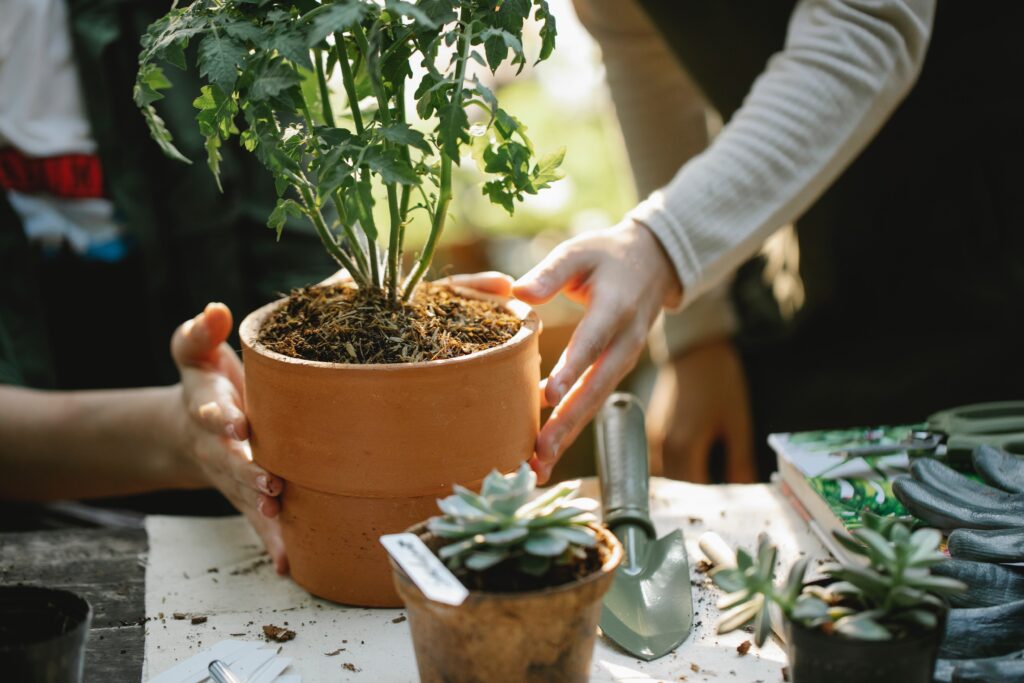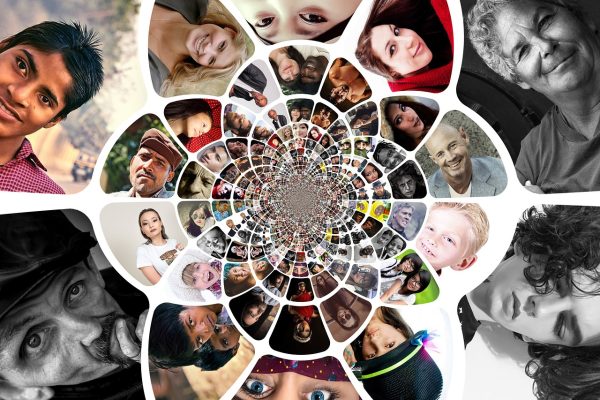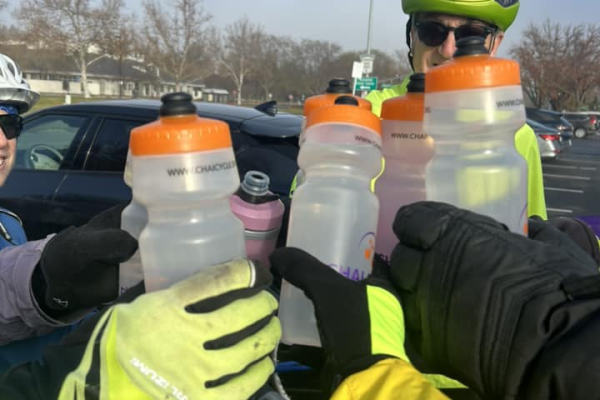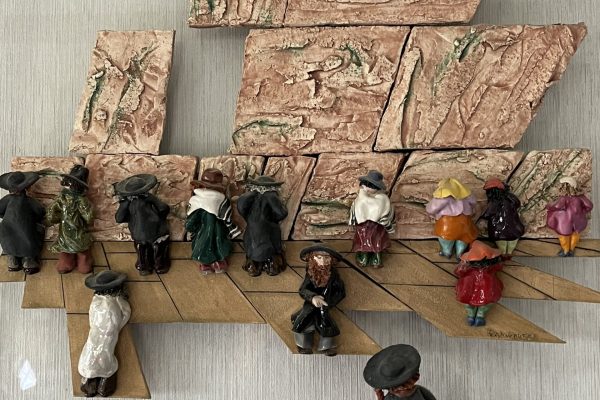Begin by covering the placenta with dirt.
Each person present may take a turn helping to dig the hole as a symbolic and literal gesture of the ritual being grounded in community support.
Read aloud:
Thank you all for coming. We’re so excited to celebrate this life with you. We start by uttering a blessing that acknowledges how grateful we are to have made it to be present for this moment.
Barukh atah, Adonai Eloheinu, melekh haolam, shehekheyanu, ve’kiye’manu, ve’higiyanu laz’man hazeh.
Blessed are You, Adonai our God, Sovereign of all, who has kept us alive, sustained us, and brought us to this season.
Blessed are You, Adonai our God, Sovereign of all, who has kept us alive, sustained us, and brought us to this season.
Like many women’s customs in Judaism, the planting of the placenta is not a very well-known one. We could say that this has to do with Jews’ tenuous relationships with land throughout history, or their apartment-dwelling populations in big cities, or the centuries that have been more hushed about birth, or sexism, or any number of reasons. But when we look in Jewish sources, it was clear that planting the placenta has deep roots.
The Jerusalem Talmud (Shabbat 18:3) states that:
“Concerning the placenta on the Sabbath, the rich women hide it in oil, the poor ones hide it in straw and sand. Both hide it in the earth, to give a pledge to Earth.”
A pledge to the Earth speaks to a fear that instead of only burying a placenta, this shallow hole might soon be used as an infant’s grave. The placenta burial reminds us of the fragility of life.
And in the Bavli (Gittin 57a:21), a story is told that “it was customary in Beitar that when a boy was born they would plant a cedar tree and when a girl was born they would plant a cypress [tornita]. And when they would later marry each other they would cut down these trees and construct a wedding canopy for them with their branches.”
A tree for a wedding canopy reminds us to have faith in a happy future for our children. That they will live, they will love, and they will build a home for themselves.
Israeli psychologist and folklorist Michele Klein wrote in her book A Time to be Born: Customs and Folklore of Jewish Birth in 1998 that “Until around 1900, Jews in Palestine buried a girl’s placenta ‘near the hearth, in hopes she would remain housebound when she grew up: a wayward daughter was ‘one whose afterbirth was lost.'”
Although we don’t wish for housebound daughters, the fear of a wayward daughter is one that we can relate to if we think about the dangers to our children outside our home. Car accidents, gun violence, the opioid crisis, and bullying are some of the dangers that take our children too young and yet we can feel helpless to prevent. Planting the placenta close to home speaks to a hope that our child will always feel at home with us, and return to us after venturing into the world anew every day.
The placenta is not the birthing-parent’s organ, but one grown by the baby. The placenta’s job is to bring nutrients from the host body’s bloodstream to the fetus. It sets itself in the uterus and a battle ensues, one that is only won with balance. If the placenta is too strong, the womb-carrier will suffer and can even die. If the placenta is too weak or the uterus rejects it, the fetus cannot grow and may die.
[Addressing the baby]
We imagine there will be more times ahead when it feels like you are in a battle with your parents, when getting what you need feels at odds with getting what we need. When this happens, we hope we can look out the window at our placenta plant and recall the lesson of balance: that too much in either direction is detrimental. We will work to give much to you and to maintain our boundaries and sustain ourselves.
We imagine there will be more times ahead when it feels like you are in a battle with your parents, when getting what you need feels at odds with getting what we need. When this happens, we hope we can look out the window at our placenta plant and recall the lesson of balance: that too much in either direction is detrimental. We will work to give much to you and to maintain our boundaries and sustain ourselves.
Because of its role in feeding the fetus, the placenta in some traditions is considered the baby’s first ancestor and treated with reverence in burial.
May you always recognize that you have the wisdom of the first ancestor inside you. Whether we die or are for some reason not available to you, we trust that you have what it takes inside of you to grow and thrive.
Today, we have chosen to plant…[Parents will explain the significance of plant chosen and how it relates to their child.]
We chose to celebrate today because…[explain significance of day]. We feel so blessed to have spent this time getting to know this person. We are grateful for the time in the womb to grow a healthy child and we are grateful to be digging this hole for only the placenta, because we know that for too many families, it does not always go the way of life. Some of the rituals around birth are mirrors of those around death –shiva is similar to the early days of healing, with quiet visitors bringing food, culminating in a naming or bris; after 30 days, we go for a walk around the block and start to integrate back into the community, and it can take that time for the birther’s body to heal as well. After 11 months, we reveal a gravestone, and today after several months, we also have a burial and reveal a new marker of your life.
We would like to end our ceremony by marking this moment as sacred. This is something Jews do over a glass of wine. We will say the blessing over wine, take a good drink from our cup, and savor the taste in our mouth.
Barukh atah, Adonai Eloheinu, melekh ha’olam, borei pe’ri hagafen.
Blessed are You, Adonai our God, Sovereign of all, who creates the fruit of the vine.












